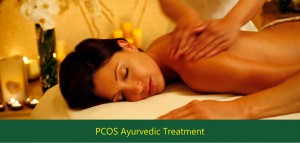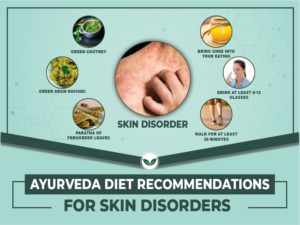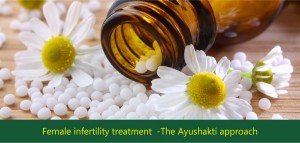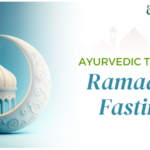PCOS is a common endocrine disorder among women of reproductive age. Women with polycystic ovary syndrome may have enlarged ovaries that contain small collections of fluid called follicles, located in the ovaries, it can be seen while going through an ultrasound. Infrequent or prolonged menstrual periods, excess hair growth, acne, and obesity can all occur in women with polycystic ovary syndrome. In adolescents, infrequent or absent menstruation may raise suspicion for the condition.
Polycystic Ovarian Syndrome is a condition in women where a woman’s level of sex hormones, progesterone and estrogen is out of control or is not balanced. It also leads to the growth of ovarian cysts. It can cause problems with a women’s menstrual cycle, fertility, cardiac function and appearance. The treatment of polycystic ovary syndrome is nothing so tough or to worry about. You just need the right place and the right doctor to treat you well. Get in touch with Ayushakti, an ayurvedic clinic in Mumbai to know about the syndrome and get it cured.

SYMPTOMS AND CAUSES OF POLYCYSTIC OVARY SYNDROME.
Symptoms of Polycystic ovary syndrome begins at a very young age with the beginning of the menstruation cycle. PCOS is marked by a decrease in female sex hormones, this condition may cause women to develop certain male characteristics, such as excess hair on the face, chest, stomach, thumbs, or toes, decrease in breast size, deeper or harsh voice, thin hair, acne, weight gain, pelvic pain, infertility and anxiety or depression. Following are a few more symptoms and causes of PCOS:
- Irregular Period– There are many causes to the irregular period but polycystic ovary syndrome is the most common cause. About 7% of the overall population of 25% of young fertile women and over 50% of women with irregular periods have PCOS. So most women with irregular mensus will turn out to have PCOS. To know the treatment of polycystic ovary syndrome gets in connection with your nearest Ayushakti branch.
- Low-grade inflammation– Body’s white blood cells produce substances to fight infection in a response called inflammation. Research has shown that women with PCOS have low-grade inflammation and that this type of low-grade inflammation stimulates polycystic ovaries to produce androgens.
- Excess androgen– Elevated levels of male hormones (androgens) may result in physical signs, such as excess facial and body hair (hirsutism), adult acne or severe adolescent acne, and male-pattern baldness (androgenic alopecia).
If you have menstrual periods less frequently then over 35 days or more then 5 weeks between periods, you very well may have polycystic ovary syndrome. Over 90% of women with PCOS have some clinical evidence of androgen excess. Including excess hair growth above their upper lip, chin, breasts or abdomen, or acne. Most of these symptoms start at an early age - Excess insulin– Insulin is the hormone produced in the pancreas that allows cells to use sugar (glucose) — your body’s primary energy supply. If you have insulin resistance, your ability to use insulin effectively is impaired, and your pancreas has to secrete more insulin to make glucose available to cells. Excess insulin might also affect the ovaries by increasing androgen production, which may interfere with the ovaries’ ability to ovulate
- Polycystic ovaries– Polycystic ovaries become enlarged and contain numerous small fluid-filled sacs which surround the eggs.
- Heredity or genetics–Now heredity or genetic play a vital role in not only PCOS but almost in all kind of diseases and infection. If one’s mother or father had a certain kind of infection disease then it is obvious that the child will grow with the same infection. One cannot help heredity issues.
There is no such specific cure or medicine for the treatment of Polycystic Ovary Syndrome. One needs to get his/her medical history checked-up and get through certain ultrasound, blood or other tests to understand if there is any serious diagnosis needed for the treatment of polycystic ovary syndrome. Also, it is best if one consults an ayurvedic professional as soon as one notices any kind imbalance or uncertain things happening in the body or the menstruation cycle.
Read this blog to know the detailed guide on the ayurvedic treatment for PCOD/PCOS
Ayushakti’s mission is to help people in every possible way. You can consult our experts on phone or video. We will suggest diet & home remedies for maintaining your wellbeing in these difficult times. Book your consultation here https://bit.ly/31YnP1b
For more information write to us at info@ayushakti.com
You may contact us on our toll-free numbers – 18002663001 (India) & +18002800906 (Global)
Author of the Blog: Dr. Hemang Parekh
Expert Review By: Dr Smita Pankaj Naram
Co-Founder, Ayushakti Ayurved Pvt Ltd









